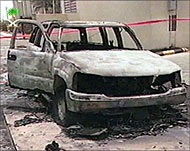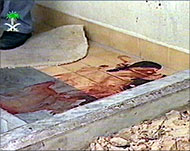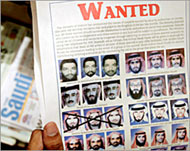Many killed, foreigners held in Saudi
Al-Qaida-linked fighters have killed at least 10 people – including several foreigners – and seized up to 50 hostages in the eastern city of Khobar.

Crown Prince Abd Allah bin Abd Al-Aziz on Saturday said 10 Saudis and foreigners had been killed, while “four or five” armed men had taken refuge in a residential compound in Khobar.
Saudi security services are reported to be preparing to storm the building housing the armed men and dozens of residents believed to be held captive.
But Saudi security sources were earlier quoted as saying that 16 people had been killed, including at least nine civilians, seven of whom were foreigners, and seven members of the Saudi security forces.
The sources gave the nationalities of the dead as an American, a Briton, an Egyptian, two Filipinos, an Indian, a Pakistani and two Saudi civilians.
After the shootings, special security forces were seen entering the Oasis housing complex as others surrounded the facility comprising several buildings, and the crackle of gunfire could be heard intermittently.
Hostages
Men, women and children were taken hostage at the compound, a diplomat said. A compound manager said up to 50 had been taken hostage.
 |
|
At least 10 people have been |
“They are holding 50 foreign hostages. There are Americans, but there are more Italians. There are also Arabs,” said the compound manager, declining to be named.
He said there was an Italian
restaurant in the complex, home to at least 20 Italians.
But three Dutch nationals and five Lebanese who had been taken hostage have been released.
Aljazeera has learnt the fighters were dressed in military uniforms when they attacked the headquarters of the Petroleum Centre company.
Al-Qaida claim
Al-Qaida network, in a purported statement carried on an Islamist website, claimed the attack.
 |
|
Usama bin Ladin’s network is |
“With the grace of God, a unit of our heroic mujahidin
have today stormed American companies … that are specialised in oil and which steal the wealth of Muslims,” said the statement which was signed by the “al-Qaida network in the Arabian Peninsula”.
The Islamist website, run by a Saudi dissident, has carried
similar statements in the past.
Earlier this month, fighters killed five Westerners at an energy complex in the Red Sea city of Yanbu and a German was shot dead last week in the capital Riyadh.
The Saudi government is battling a wave of opposition to its rule. A string of bombings last year killed 50 people, including nine Americans.
Urban war
The killings came after an earlier statement purported to be from al-Qaida chief in Saudi Arabia on an Islamist website on Thursday urged followers to wage an urban guerrilla war of assassinations, kidnappings and bombings.
 |
|
Saudi Arabia has issued a list of |
The “execution group” in each four-tiered cell should be “trained to carry out operations inside cities, including assassinations, abductions, bombings, sabotage, raids and the liberation of hostages,” said the statement attributed to Abd Al-Aziz al-Muqrin.
The lengthy statement, the authenticity of which could not be independently confirmed, appeared to be several months old and it was not clear why it was belatedly made public.
It refers to the Saudi authorities’ announcement “in recent days of the names of 26 mujahid … which showed the failure of their security agencies to track down the mujahdin.”
The reference was to a list of 26 most-wanted suspects issued by Saudi authorities in December after a series of bombings that targeted residential compounds in Riyadh in May and November 2003.